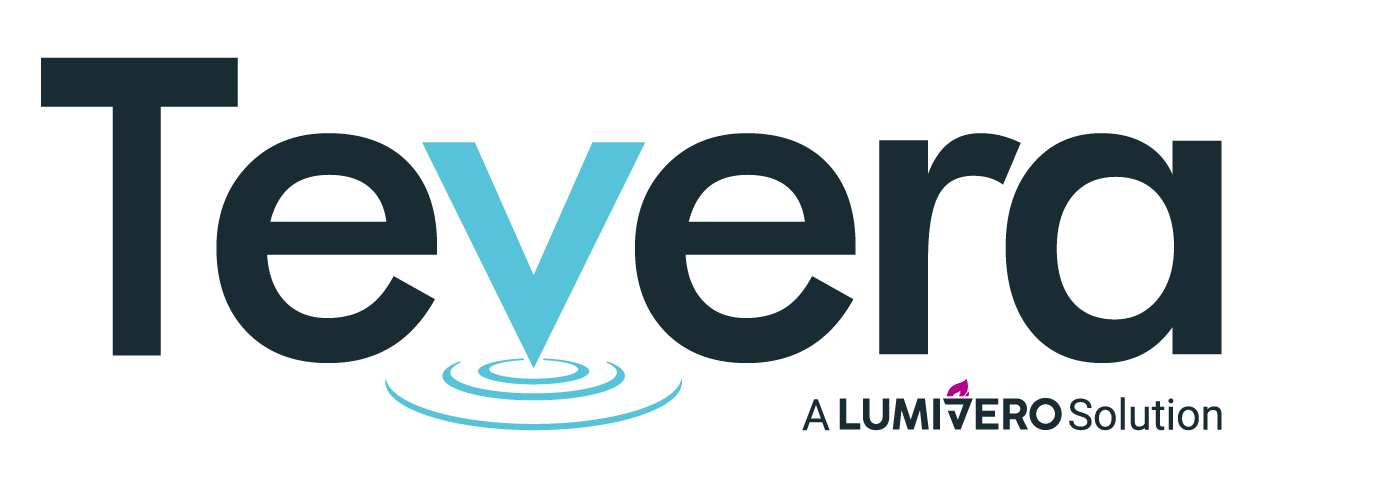APA Accreditation Requirements and Standards
As a program director, administrator or supervisor, you likely strive for accreditations that give your institution a competitive advantage and boost your students’ future careers. Accreditation shows that your program meets certain criteria and quality standards and continually improves through self-study and review. An American Psychological Association (APA) accreditation is a particularly honorable achievement that ensures your program meets nationally endorsed standards for clinical psychology and related degrees.
While achieving accreditation provides long-term credibility and demonstrates consistency between program goals and outcomes, it can be a challenging and time-consuming process. To make this process easier, you can implement software that simplifies documentation and streamlines your program outcomes to make meeting APA accreditation standards much easier and more efficient.
What is APA Accreditation?
The American Psychological Association is the only programmatic accreditation agency authorized by the U.S. Department of Education to accredit certain psychology programs. Receiving an APA accreditation ensures students, faculty and the general public that your program meets specific professional, scientific and quality standards that support the skillful and ethical delivery of psychological services.
The APA only accredits doctoral and postgraduate internships and residencies in school psychology, counseling psychology and clinical psychology programs. Accreditation is voluntary, meaning program directors and institutions must choose whether they want to apply for it. However, APA accreditation is seen as the gold standard in the world of psychology.
Accreditation is a stamp of approval that shows potential students and faculty that your program successfully meets the APA’s Standards of Accreditation and prepares graduates to provide research-based services associated with improved well-being. This achievement also signifies that your program is committed to external review and seeks to continuously enhance the quality of education and training for students.
APA Accreditation Requirements and Standards
The specific standards you need to meet to achieve an APA accreditation depend on the type of program you offer. Doctoral programs, doctoral internships and postdoctoral residencies all have slightly different standards and requirements. For example, an APA-accredited Doctor of Philosophy (Ph.D.) program student must complete substantial training in research methods and statistics to independently produce new scientific knowledge.
A Doctor of Psychology (PsyD) program student must be able to apply scientific knowledge of psychology and deliver empirically based service to individuals, groups and organizations. Both programs must ensure that all students have the minimum training and competency necessary for serving clients and treating patients.
The APA Commission on Accreditation (APA-CoA) lists the scope of accreditation for students studying to provide psychological services to the general public in three categories of programs, which include:
- Doctoral programs
- Internship programs
- Postdoctoral residency programs
The APA-CoA reviews the doctoral and internship programs to ensure they provide broad and general training in scientific psychology. Practice areas in this program include school psychology, counseling psychology and clinical psychology, as well as general professional psychology. As for postdoctoral residencies, the CoA reviews whether the program has provided education and training at an advanced level of competency in a traditional area of psychology, including clinical, counseling, school or another area.
In previous years, the APA-CoA only extended its accreditation to doctoral, internship and postdoctoral residency psychology programs. However, after nearly 70 years of debate, the Council of Representatives enabled the American Psychological Association to develop a system of accreditation in health service areas of psychology for master’s programs. In December 2022, The APA listed the most recent education and training requirements for the accreditation of health service psychology programs at the master’s level. These standards of accreditation for health service psychology degrees at the master’s level must include the following:
- Integration of psychological science and practice.
- Evidence-based and research-informed practice.
- Sequential, cumulative training that is graded in complexity and prepares students for higher education practice.
- Actions that uphold respect for and understanding of diversity and cultural and individual differences.
To become accredited, The CoA must review the programs in a multistep process to ensure it meets the Standards of Accreditation. First, your program must submit a self-study document that contains specific information regarding your training, including:
- Objectives
- Goals
- Practices
- Program policies and procedures
- Student, faculty and financial resources
- Competencies students must obtain
- Outcome data that reflect the achievement of these competencies
Once you submit this self-study, the APA-CoA will conduct their review. If your application is accepted, the APA will send a team to conduct an on-site review of your institution or program. If your self-study is denied, it means it does not sufficiently align with the overall accreditation guidelines.
Which States Require APA Accreditation for Licensure?
Accreditation in any state is important for facilitating achievements and reflecting a program or institution’s quality. While some higher education degrees only require an institutional accreditation, there are certain states that require APA accreditation for licensure, which include:
Some states that do not require APA accreditation for psychologists include:
In many states, however, including some of those listed above, programs that are not APA-accredited may be accepted if they meet standards published by the State Board. This means your program must be reviewed to determine if it meets certain educational criteria.
Tevera empowers your program’s administrators, staff, faculty, and students to access by centralizing all the information you need in a single software solution.
How Tevera Helps Colleges Earn and Maintain APA Accreditation
Accreditation shows prospective students that your program is credible and can help prepare them for their future careers. However, the process of earning and maintaining an APA accreditation can be overwhelming. Tevera is a single collection point for program data that aims to help students and programs thrive. With Tevera, your institution empowers administrators, staff, professors and students to access the same software and centralize the data you need for APA accreditation. This means your institution can see an improved process for all stakeholders, from students to deans to third-party field administrators.
Tevera simplifies APA reporting by consolidating disparate data and helping you catch mistakes — all in a user-friendly interface — and empowers you to manage program-wide outcomes to support accreditation. This solution helps program administrators like you gain actionable insights and save your staff valuable time so they can focus more on supporting students. With fast and easy tools that help you gather, clean and prepare data, you can quickly access all the information and reports you need to earn and maintain your APA accreditation.
APA Accreditation Reporting
Tevera’s software program contains robust assessment reports that simplify your accreditation process. You can quickly generate student and program outcome reports in various formats, including:
- Individual Student Rubric Analysis
- Group Rubric Analysis
- Individual Student Accreditation Standards
- Group Analysis of Accreditation Standards
- Accreditation Standards Raw Data
You can filter these powerful reports to gain targeted insights and streamline your accreditation by determining how well your students are meeting standards. With the touch of a button, you instantly receive a PDF of your chosen report to see data for a class, data range, program or other specification. Tevera also enables students, faculty and admins to run reports for instructor approval or internal use to better understand how they are performing.
At Tevera, we know that good data is significantly enhanced when it’s shaped into something useful that supports student achievement. That’s why our software captures and tracks your program’s data to help you meet state-specific programmatic accreditation standards. As your reporting needs change, we will too. Tevera maintains close and ongoing partnerships with institutions to adjust our software based on changing accreditation standards so we can consistently meet your needs.
Simplify APA Accreditation With Tevera
Becoming APA Accredited takes work and can become an obstacle if your data is disorganized. With Tevera, you can keep student success at the center of everything. If you’re looking to earn an APA accreditation or reaccreditation, Tevera has the resources you need to manage field experience and program outcomes while simplifying the complexity of tracking student progress.
Our software supports accreditation requirements by facilitating communication between students and faculty, streamlining reporting and helping students track their clinical hours. The goal of Tevera is to help programs prepare students for successful careers and even gather and host data on post-grad success. At Tevera, we put students at the heart of what we do. Schedule a product overview with Tevera today to learn how our software can enhance your APA accreditation process.
Interested in Learning About Other Accreditation Bodies Tevera Supports?
SOLUTIONS
RELATED POSTS
PRODUCT OVERVIEW
See how Tevera can elevate your program.
APA Accreditation Requirements and Standards
As a program director, administrator or supervisor, you likely strive for accreditations that give your institution a competitive advantage and boost your students’ future careers. Accreditation shows that your program meets certain criteria and quality standards and continually improves through self-study and review. An American Psychological Association (APA) accreditation is a particularly honorable achievement that ensures your program meets nationally endorsed standards for clinical psychology and related degrees.
While achieving accreditation provides long-term credibility and demonstrates consistency between program goals and outcomes, it can be a challenging and time-consuming process. To make this process easier, you can implement software that simplifies documentation and streamlines your program outcomes to make meeting APA accreditation standards much easier and more efficient.
What is APA Accreditation?
The American Psychological Association is the only programmatic accreditation agency authorized by the U.S. Department of Education to accredit certain psychology programs. Receiving an APA accreditation ensures students, faculty and the general public that your program meets specific professional, scientific and quality standards that support the skillful and ethical delivery of psychological services.
The APA only accredits doctoral and postgraduate internships and residencies in school psychology, counseling psychology and clinical psychology programs. Accreditation is voluntary, meaning program directors and institutions must choose whether they want to apply for it. However, APA accreditation is seen as the gold standard in the world of psychology.
Accreditation is a stamp of approval that shows potential students and faculty that your program successfully meets the APA’s Standards of Accreditation and prepares graduates to provide research-based services associated with improved well-being. This achievement also signifies that your program is committed to external review and seeks to continuously enhance the quality of education and training for students.
APA Accreditation Requirements and Standards
The specific standards you need to meet to achieve an APA accreditation depend on the type of program you offer. Doctoral programs, doctoral internships and postdoctoral residencies all have slightly different standards and requirements. For example, an APA-accredited Doctor of Philosophy (Ph.D.) program student must complete substantial training in research methods and statistics to independently produce new scientific knowledge.
A Doctor of Psychology (PsyD) program student must be able to apply scientific knowledge of psychology and deliver empirically based service to individuals, groups and organizations. Both programs must ensure that all students have the minimum training and competency necessary for serving clients and treating patients.
The APA Commission on Accreditation (APA-CoA) lists the scope of accreditation for students studying to provide psychological services to the general public in three categories of programs, which include:
- Doctoral programs
- Internship programs
- Postdoctoral residency programs
The APA-CoA reviews the doctoral and internship programs to ensure they provide broad and general training in scientific psychology. Practice areas in this program include school psychology, counseling psychology and clinical psychology, as well as general professional psychology. As for postdoctoral residencies, the CoA reviews whether the program has provided education and training at an advanced level of competency in a traditional area of psychology, including clinical, counseling, school or another area.
In previous years, the APA-CoA only extended its accreditation to doctoral, internship and postdoctoral residency psychology programs. However, after nearly 70 years of debate, the Council of Representatives enabled the American Psychological Association to develop a system of accreditation in health service areas of psychology for master’s programs. In December 2022, The APA listed the most recent education and training requirements for the accreditation of health service psychology programs at the master’s level. These standards of accreditation for health service psychology degrees at the master’s level must include the following:
- Integration of psychological science and practice.
- Evidence-based and research-informed practice.
- Sequential, cumulative training that is graded in complexity and prepares students for higher education practice.
- Actions that uphold respect for and understanding of diversity and cultural and individual differences.
To become accredited, The CoA must review the programs in a multistep process to ensure it meets the Standards of Accreditation. First, your program must submit a self-study document that contains specific information regarding your training, including:
- Objectives
- Goals
- Practices
- Program policies and procedures
- Student, faculty and financial resources
- Competencies students must obtain
- Outcome data that reflect the achievement of these competencies
Once you submit this self-study, the APA-CoA will conduct their review. If your application is accepted, the APA will send a team to conduct an on-site review of your institution or program. If your self-study is denied, it means it does not sufficiently align with the overall accreditation guidelines.
Which States Require APA Accreditation for Licensure?
Accreditation in any state is important for facilitating achievements and reflecting a program or institution’s quality. While some higher education degrees only require an institutional accreditation, there are certain states that require APA accreditation for licensure, which include:
Some states that do not require APA accreditation for psychologists include:
In many states, however, including some of those listed above, programs that are not APA-accredited may be accepted if they meet standards published by the State Board. This means your program must be reviewed to determine if it meets certain educational criteria.
Tevera empowers your program’s administrators, staff, faculty, and students to access by centralizing all the information you need in a single software solution.
How Tevera Helps Colleges Earn and Maintain APA Accreditation
Accreditation shows prospective students that your program is credible and can help prepare them for their future careers. However, the process of earning and maintaining an APA accreditation can be overwhelming. Tevera is a single collection point for program data that aims to help students and programs thrive. With Tevera, your institution empowers administrators, staff, professors and students to access the same software and centralize the data you need for APA accreditation. This means your institution can see an improved process for all stakeholders, from students to deans to third-party field administrators.
Tevera simplifies APA reporting by consolidating disparate data and helping you catch mistakes — all in a user-friendly interface — and empowers you to manage program-wide outcomes to support accreditation. This solution helps program administrators like you gain actionable insights and save your staff valuable time so they can focus more on supporting students. With fast and easy tools that help you gather, clean and prepare data, you can quickly access all the information and reports you need to earn and maintain your APA accreditation.
APA Accreditation Reporting
Tevera’s software program contains robust assessment reports that simplify your accreditation process. You can quickly generate student and program outcome reports in various formats, including:
- Individual Student Rubric Analysis
- Group Rubric Analysis
- Individual Student Accreditation Standards
- Group Analysis of Accreditation Standards
- Accreditation Standards Raw Data
You can filter these powerful reports to gain targeted insights and streamline your accreditation by determining how well your students are meeting standards. With the touch of a button, you instantly receive a PDF of your chosen report to see data for a class, data range, program or other specification. Tevera also enables students, faculty and admins to run reports for instructor approval or internal use to better understand how they are performing.
At Tevera, we know that good data is significantly enhanced when it’s shaped into something useful that supports student achievement. That’s why our software captures and tracks your program’s data to help you meet state-specific programmatic accreditation standards. As your reporting needs change, we will too. Tevera maintains close and ongoing partnerships with institutions to adjust our software based on changing accreditation standards so we can consistently meet your needs.
Simplify APA Accreditation With Tevera
Becoming APA Accredited takes work and can become an obstacle if your data is disorganized. With Tevera, you can keep student success at the center of everything. If you’re looking to earn an APA accreditation or reaccreditation, Tevera has the resources you need to manage field experience and program outcomes while simplifying the complexity of tracking student progress.
Our software supports accreditation requirements by facilitating communication between students and faculty, streamlining reporting and helping students track their clinical hours. The goal of Tevera is to help programs prepare students for successful careers and even gather and host data on post-grad success. At Tevera, we put students at the heart of what we do. Schedule a product overview with Tevera today to learn how our software can enhance your APA accreditation process.
Interested in Learning About Other Accreditation Bodies Tevera Supports?
APA Accreditation Requirements and Standards
As a program director, administrator or supervisor, you likely strive for accreditations that give your institution a competitive advantage and boost your students’ future careers. Accreditation shows that your program meets certain criteria and quality standards and continually improves through self-study and review. An American Psychological Association (APA) accreditation is a particularly honorable achievement that ensures your program meets nationally endorsed standards for clinical psychology and related degrees.
While achieving accreditation provides long-term credibility and demonstrates consistency between program goals and outcomes, it can be a challenging and time-consuming process. To make this process easier, you can implement software that simplifies documentation and streamlines your program outcomes to make meeting APA accreditation standards much easier and more efficient.
What is APA Accreditation?
The American Psychological Association is the only programmatic accreditation agency authorized by the U.S. Department of Education to accredit certain psychology programs. Receiving an APA accreditation ensures students, faculty and the general public that your program meets specific professional, scientific and quality standards that support the skillful and ethical delivery of psychological services.
The APA only accredits doctoral and postgraduate internships and residencies in school psychology, counseling psychology and clinical psychology programs. Accreditation is voluntary, meaning program directors and institutions must choose whether they want to apply for it. However, APA accreditation is seen as the gold standard in the world of psychology.
Accreditation is a stamp of approval that shows potential students and faculty that your program successfully meets the APA’s Standards of Accreditation and prepares graduates to provide research-based services associated with improved well-being. This achievement also signifies that your program is committed to external review and seeks to continuously enhance the quality of education and training for students.
APA Accreditation Requirements and Standards
The specific standards you need to meet to achieve an APA accreditation depend on the type of program you offer. Doctoral programs, doctoral internships and postdoctoral residencies all have slightly different standards and requirements. For example, an APA-accredited Doctor of Philosophy (Ph.D.) program student must complete substantial training in research methods and statistics to independently produce new scientific knowledge.
A Doctor of Psychology (PsyD) program student must be able to apply scientific knowledge of psychology and deliver empirically based service to individuals, groups and organizations. Both programs must ensure that all students have the minimum training and competency necessary for serving clients and treating patients.
The APA Commission on Accreditation (APA-CoA) lists the scope of accreditation for students studying to provide psychological services to the general public in three categories of programs, which include:
- Doctoral programs
- Internship programs
- Postdoctoral residency programs
The APA-CoA reviews the doctoral and internship programs to ensure they provide broad and general training in scientific psychology. Practice areas in this program include school psychology, counseling psychology and clinical psychology, as well as general professional psychology. As for postdoctoral residencies, the CoA reviews whether the program has provided education and training at an advanced level of competency in a traditional area of psychology, including clinical, counseling, school or another area.
In previous years, the APA-CoA only extended its accreditation to doctoral, internship and postdoctoral residency psychology programs. However, after nearly 70 years of debate, the Council of Representatives enabled the American Psychological Association to develop a system of accreditation in health service areas of psychology for master’s programs. In December 2022, The APA listed the most recent education and training requirements for the accreditation of health service psychology programs at the master’s level. These standards of accreditation for health service psychology degrees at the master’s level must include the following:
- Integration of psychological science and practice.
- Evidence-based and research-informed practice.
- Sequential, cumulative training that is graded in complexity and prepares students for higher education practice.
- Actions that uphold respect for and understanding of diversity and cultural and individual differences.
To become accredited, The CoA must review the programs in a multistep process to ensure it meets the Standards of Accreditation. First, your program must submit a self-study document that contains specific information regarding your training, including:
- Objectives
- Goals
- Practices
- Program policies and procedures
- Student, faculty and financial resources
- Competencies students must obtain
- Outcome data that reflect the achievement of these competencies
Once you submit this self-study, the APA-CoA will conduct their review. If your application is accepted, the APA will send a team to conduct an on-site review of your institution or program. If your self-study is denied, it means it does not sufficiently align with the overall accreditation guidelines.
Which States Require APA Accreditation for Licensure?
Accreditation in any state is important for facilitating achievements and reflecting a program or institution’s quality. While some higher education degrees only require an institutional accreditation, there are certain states that require APA accreditation for licensure, which include:
Some states that do not require APA accreditation for psychologists include:
In many states, however, including some of those listed above, programs that are not APA-accredited may be accepted if they meet standards published by the State Board. This means your program must be reviewed to determine if it meets certain educational criteria.
Tevera empowers your program’s administrators, staff, faculty, and students to access by centralizing all the information you need in a single software solution.
How Tevera Helps Colleges Earn and Maintain APA Accreditation
Accreditation shows prospective students that your program is credible and can help prepare them for their future careers. However, the process of earning and maintaining an APA accreditation can be overwhelming. Tevera is a single collection point for program data that aims to help students and programs thrive. With Tevera, your institution empowers administrators, staff, professors and students to access the same software and centralize the data you need for APA accreditation. This means your institution can see an improved process for all stakeholders, from students to deans to third-party field administrators.
Tevera simplifies APA reporting by consolidating disparate data and helping you catch mistakes — all in a user-friendly interface — and empowers you to manage program-wide outcomes to support accreditation. This solution helps program administrators like you gain actionable insights and save your staff valuable time so they can focus more on supporting students. With fast and easy tools that help you gather, clean and prepare data, you can quickly access all the information and reports you need to earn and maintain your APA accreditation.
APA Accreditation Reporting
Tevera’s software program contains robust assessment reports that simplify your accreditation process. You can quickly generate student and program outcome reports in various formats, including:
- Individual Student Rubric Analysis
- Group Rubric Analysis
- Individual Student Accreditation Standards
- Group Analysis of Accreditation Standards
- Accreditation Standards Raw Data
You can filter these powerful reports to gain targeted insights and streamline your accreditation by determining how well your students are meeting standards. With the touch of a button, you instantly receive a PDF of your chosen report to see data for a class, data range, program or other specification. Tevera also enables students, faculty and admins to run reports for instructor approval or internal use to better understand how they are performing.
At Tevera, we know that good data is significantly enhanced when it’s shaped into something useful that supports student achievement. That’s why our software captures and tracks your program’s data to help you meet state-specific programmatic accreditation standards. As your reporting needs change, we will too. Tevera maintains close and ongoing partnerships with institutions to adjust our software based on changing accreditation standards so we can consistently meet your needs.
Simplify APA Accreditation With Tevera
Becoming APA Accredited takes work and can become an obstacle if your data is disorganized. With Tevera, you can keep student success at the center of everything. If you’re looking to earn an APA accreditation or reaccreditation, Tevera has the resources you need to manage field experience and program outcomes while simplifying the complexity of tracking student progress.
Our software supports accreditation requirements by facilitating communication between students and faculty, streamlining reporting and helping students track their clinical hours. The goal of Tevera is to help programs prepare students for successful careers and even gather and host data on post-grad success. At Tevera, we put students at the heart of what we do. Schedule a product overview with Tevera today to learn how our software can enhance your APA accreditation process.





















